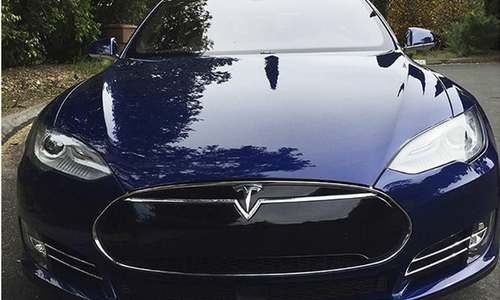SHANGHAI: Tesla removed the word “autopilot” and a Chinese term for “self-driving” from its China website after a driver in Beijing who crashed in “autopilot” mode complained that the car maker overplayed the function's capability and misled buyers.
The Tesla driver crashed earlier this month while on a Beijing commuter highway after the car failed to avoid a vehicle parked on the left side, partially in the roadway, damaging both cars but causing no injuries.
It was the first known such crash in China, though it follows a fatal accident in Florida earlier this year that put pressure on the auto executives and regulators to tighten rules for automated driving.
“At Tesla we are continuously making improvements, including to translations,” a Tesla spokeswoman said in an emailed statement to Reuters.
“We've been in the process of addressing any discrepancies across languages for many weeks. Timing had nothing to do with current events or articles.”
References to autopilot and the term “zidong jiashi”, which most literally translates as self-driving although also means autopilot, were taken off the webpage for the Model S sedan by late Sunday, according to a comparison with an archived version of page.
Both terms previously appeared several times on the site.
Instead a phrase that translates as 'self-assisted driving' is used.
Tesla China staff have additionally undergone training in response to the August 2 crash to re-emphasise that employees must always keep two hands on the wheel when demonstrating the autopilot function, according to a Tesla employee who was not authorised to speak to the media.
Reuters was first to report last week that Tesla said it downloaded data from the Beijing car and confirmed it was in autopilot mode at the time of the crash, although the driver was not detected to have his hands on the wheel.
The spokeswoman for the US automaker issued a statement saying that the system was not self-driving but merely assistive and that drivers were responsible for always maintaining control of the vehicle.
Other Tesla drivers interviewed by Reuters said China sales staff took their hands off the wheel while demonstrating the function. Under Chinese law, drivers are required to keep two hands on the wheel at all times.
The crash is another hiccup for Tesla in the Chinese auto market, the world's largest, after it initially struggled with distribution and charging issues.
Various Chinese government ministries did not respond to requests for comment on the Tesla crash and self-driving policies.















































Dear visitor, the comments section is undergoing an overhaul and will return soon.